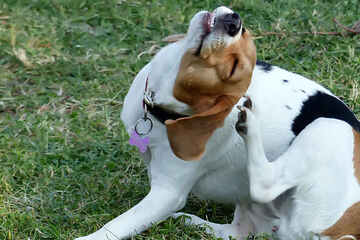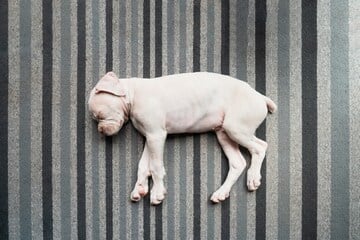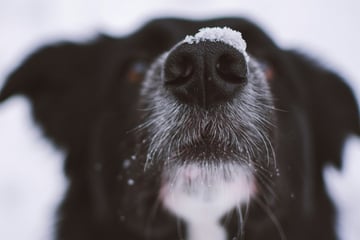How often should you feed your dog?
Your dog's nutrition is paramount to keeping it healthy and happy. Yet the pup is going to insist on food time and time again every day, even if it has already had its feed. Are you maybe not feeding your dog enough?
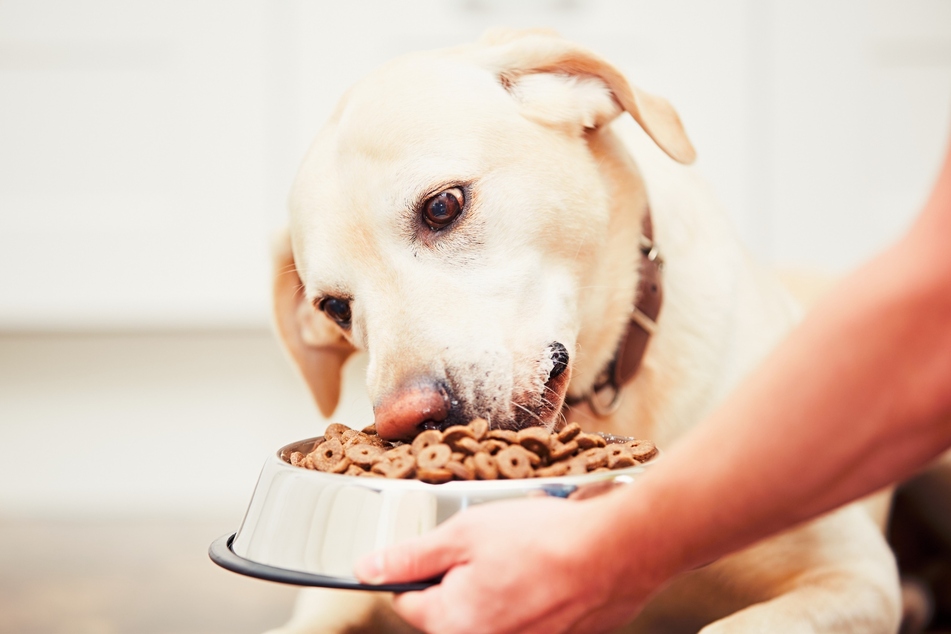
All dog owners have experienced the frustration of having to deal with a pup so intent on getting another meal that the whining just doesn't seem to let up.
How do you make sure that your dog is getting enough to eat without over-feeding it?
When is too much, and when is too little?
How often should you feed your dog each day, and are there situations in which these rules change?
How often should you feed your dog?
While there are many mitigating factors, in general you should give your dog one full meal a day and a few treats as you go. The idea is to keep them relatively happy and stop them from starving as the day progresses, before presenting them with a truly delicious and nutritious meal in the evening.
In other words, you should really only properly feed your dog once a day, mostly to avoid major health issues in the future as well as conditions like obesity and diabetes (both of which can end up fatal if not treated or prevented). Ultimately, though, the most important thing is not the quantity or regularity in which you feed your dog, but the quality of the dinner you provide.
Simply integrate everything into a daily routine that is strictly followed and can easily be understood by your dog, always feeding it at the same time according to the sun and season. While doing so, consult a veterinarian and make sure that the diet itself is designed well for your dog and fits all of its nutritional needs.
Ultimately, your dog is your responsibility, so making these decisions all comes down to you. Just be reasonable, feed your dog once a day, act with common sense, and you'll probably be fine.

In what situations should a dog be fed twice a day?
In some cases, dogs will need to eat a proper meal twice a day, or perhaps even more regularly. Such situations usually center around a health condition that can cause havoc to not only your canine companion's body but its state of mind, too.
The danger of feeding twice a day is that the dog may end up overfed, as the total amount of food your dog needs can easily be exceeded. Still, in some cases increased calorie intake is necessary. When that's the case it is perfectly okay to do so as long as it is with permission and under the supervision of your veterinarian.
These five categories describe when your dog should be fed more regularly than once a day. Again, check with a vet before going ahead with anything, this is just a vague guide.
When they are big
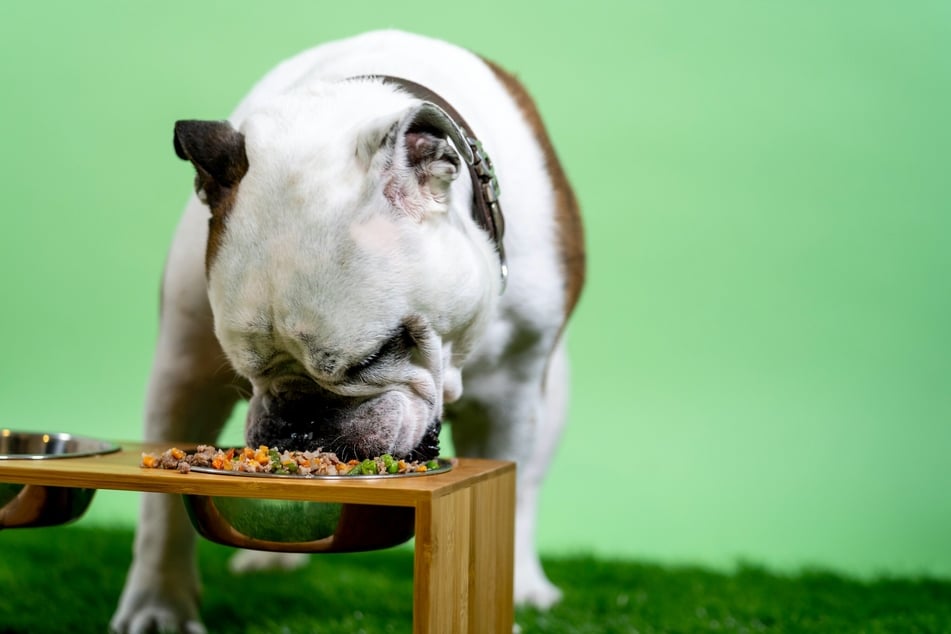
Very large dogs such as Great Danes or big bulldogs have an unusual build and a comparatively large stomach.
As a result, they have an increased risk of stomach torsion if they eat too much at once.
Instead, give them two smaller meals throughout the day which add up in total to the same amount of food, just more spread out and easier to digest.
When they are small
Very small dogs such as Chihuahuas may be small in size, but they have a comparatively high energy requirement. In addition, they might be growing and therefore need a bunch more energy and sustenance to keep them going and going. To keep these small four-legged friends fit and healthy, they should be fed twice a day, as per the recommendations of a trained and professional veterinarian.
When they serve a purpose
When a dog is put under a large amount of strain, maybe because it has a vocation or just enjoys life to the fullest, it might be necessary for them to eat small amounts of food spread out across the day. If you do this, they can keep their energy up while not putting too much of a strain on their body while they are doing exercise-intensive tasks like herding cattle or guarding airports.
When they are pregnant or breastfeeding
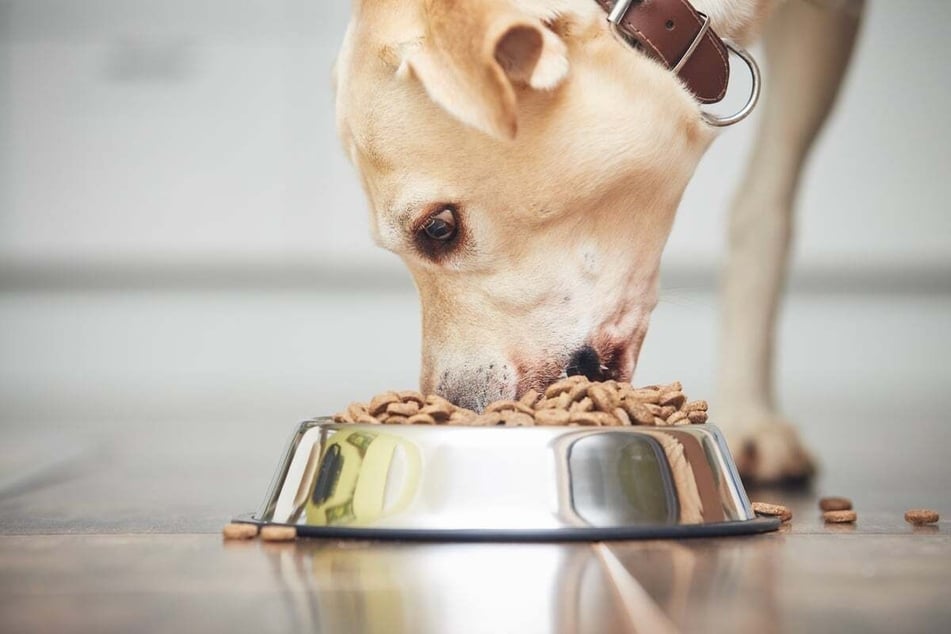
When a dog is pregnant, she can no longer consume as much food at once, due to the physical changes that come from carrying puppies.
As a result, two or three small portions spread out well across the day are highly recommended.
If you do this, they will end up feeling much more comfortable, happy, and healthy.
In addition to this, more regular and calorie intensive feeding is often recommended when your dog is breastfeeding, to improve the milk.
When they're very active
As with humans, the amount of energy required with a meal increases with high physical activity. Dogs that do a lot of physical work should be given two medium-sized portions of food a day. In particular, dogs like huskies, that are extremely active, play a lot, and like to spend lots of time off the leash, should really be fed relatively regularly. Again, only make dietary changes after consulting a veterinarian.
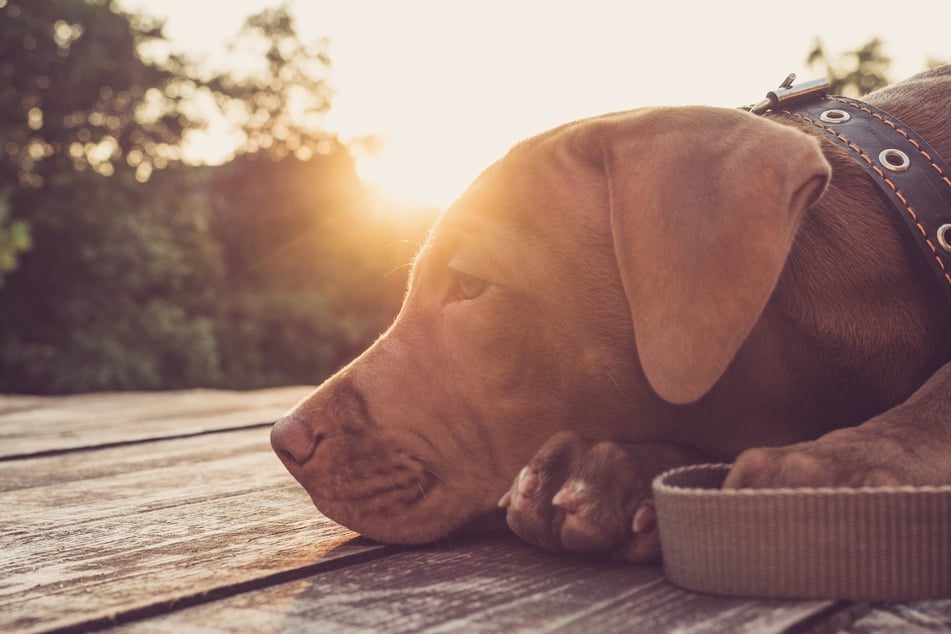
How much time should be left between meals?
Fixed feeding times are useful because they give your dog's body a certain daily routine. In addition to providing physical benefits, this routine makes a dog more calm, keeps it more balanced, and allows it time to properly digest the food rather than have the food pile up in the stomach.
Make sure to try and spread out your feeding times by a minimum of 12 hours if feeding your dog more than once in a day. If you do this, you allow your dog time to digest, you give it something to be excited about in a few hours time, and you keep it on a regular and happy schedule that will help its mental and physical health in equal measure.
Dogs are obsessed with food and will constantly seek it out, especially when it knows that its humans are weak and easily convinced. As long as you stick to a regular schedule and keep your doggo happy, though, you won't have much to worry about.
Cover photo: 123RF/chalabala

